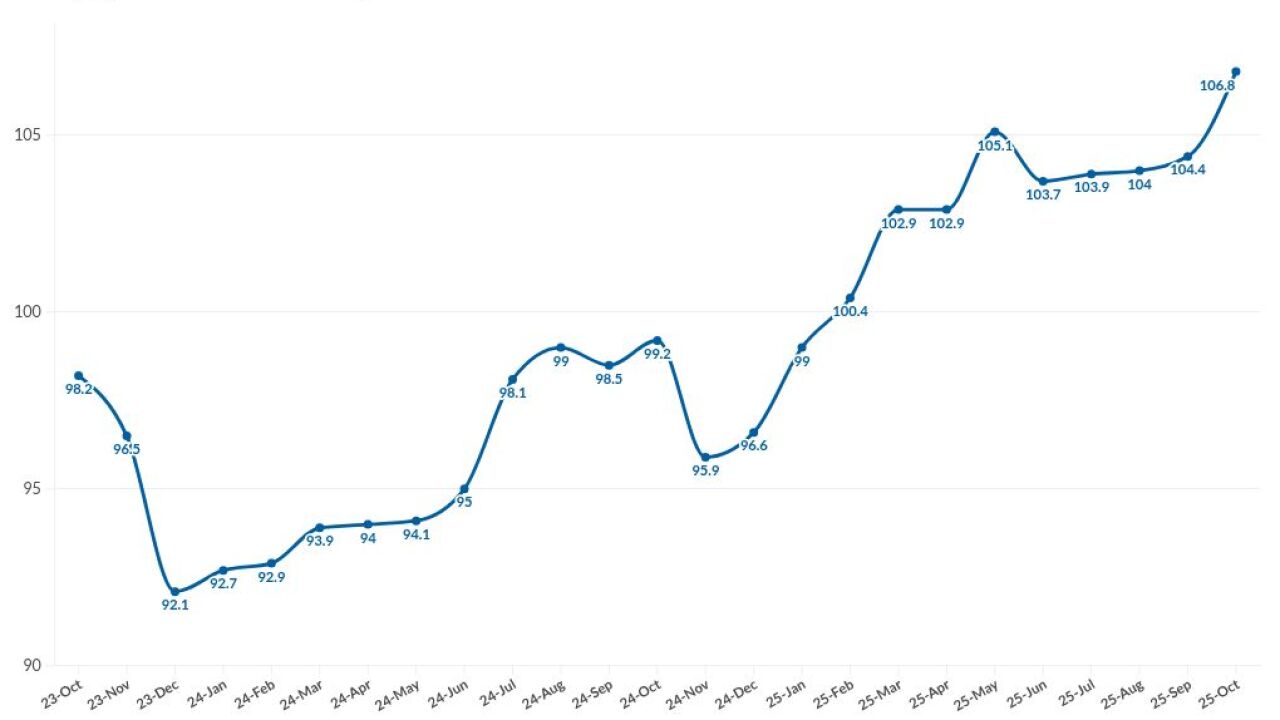Ford Motor Credit is restoring the five-year limit on new assets for its next revolving securitization transaction, after raising the risk factor with a seven-year window in its previous deal in 2018.
But the captive finance lender for Ford Motor Co. is slightly pushing out on risk in another direction, bulking up on more used cars as well as more long-term loans for those vehicles in the $1.1 billion Ford Credit Auto Owner Trust (FCAOT) 2019-REV1.
According to presale reports, Ford Credit is increasing the concentration limits on receivables from used vehicles to 17.5% from the 15% cap from FCAOT 2018-REV2. The loan cap on used-car loans, meanwhile, is being stretched to 22.5% from 20%.
“Performance of loans in these buckets are generally weaker, as used vehicle loans and longer term loans carry higher risks and the higher concentration limits could lead to weaker overall pool performance,” Moody’s Investors Service said in a presale report.

The higher concentrations follow from industry trends toward lengthier originations and higher demand and sales for used autos as rising prices for new vehicles drive buyers into pre-owned dealer lots.
FCAOT 2019-REV1, the 11th revolving transaction sponsored by Ford Motor Credit, and will feature a similar structure to the lender’s previous revolving transactions: a single, triple-A rated senior tranche and two small subordinate note classes.
Because of the boost in used-vehicle asset concentrations, Moody’s has raised its expected loss scenarios by 25 basis points to 2%-2.5% (based on the application of different pool composition tests).
The five-year revolver restores the period that Ford Motor Credit has used historically for the addition of subsequent high-quality credits into the pool, after the lender’s trust boosted the period to seven years for its FCAOAT 2018-REV2 transaction. (Ford previously raised eyebrows placing a 10-year revolving window into a
S&P Global Ratings stated the high-prime quality of the collateral pool is unchanged from previous deals (the weighted average FICO is 738, with 37% of borrowers with FICOs above 749). But the 9.5% credit enhancement $1 billion Class A notes declined from 10.5% level with the previous Ford revolving pool of auto-loan receivables.
Some credit improvements to the deal include the reduction in the revolving window, a decrease in the weighted average APR on contracts to 3.48% from 3.63% and a higher WA loan-to-value ratio of 97.9% for the pool.
The transaction involves 55,774 loans with a receivables balance of $1.63 billion with original terms of 65 months and seasoning of seven months. The average remaining balance is $29,225 on the vehicles that have a large concentration of light trucks (48%) and sport utility vehicles (38%). Only 14% of the pool are loans tied to passenger vehicles.
Bank of America Merrill Lynch is the lead underwriter.





